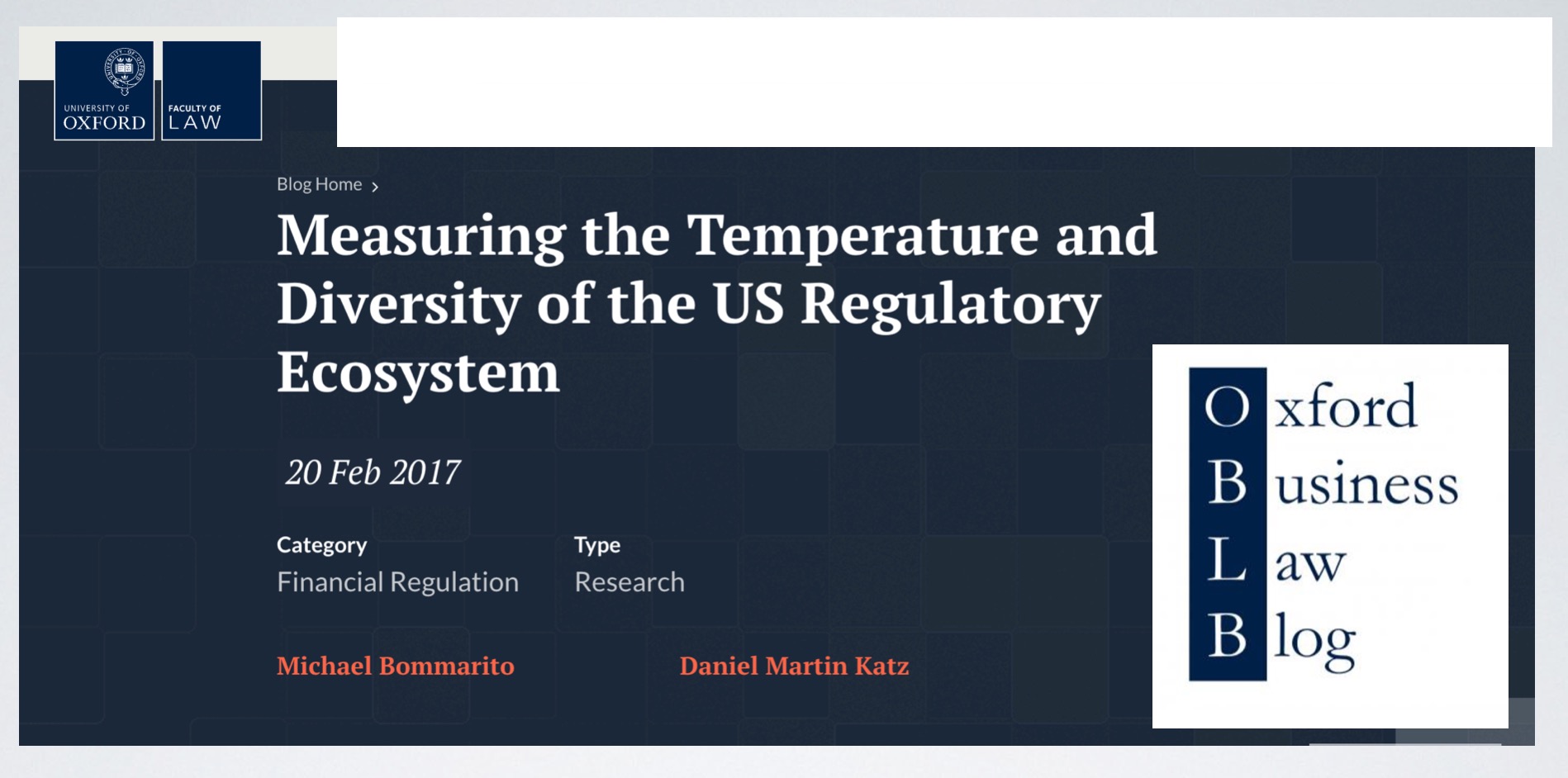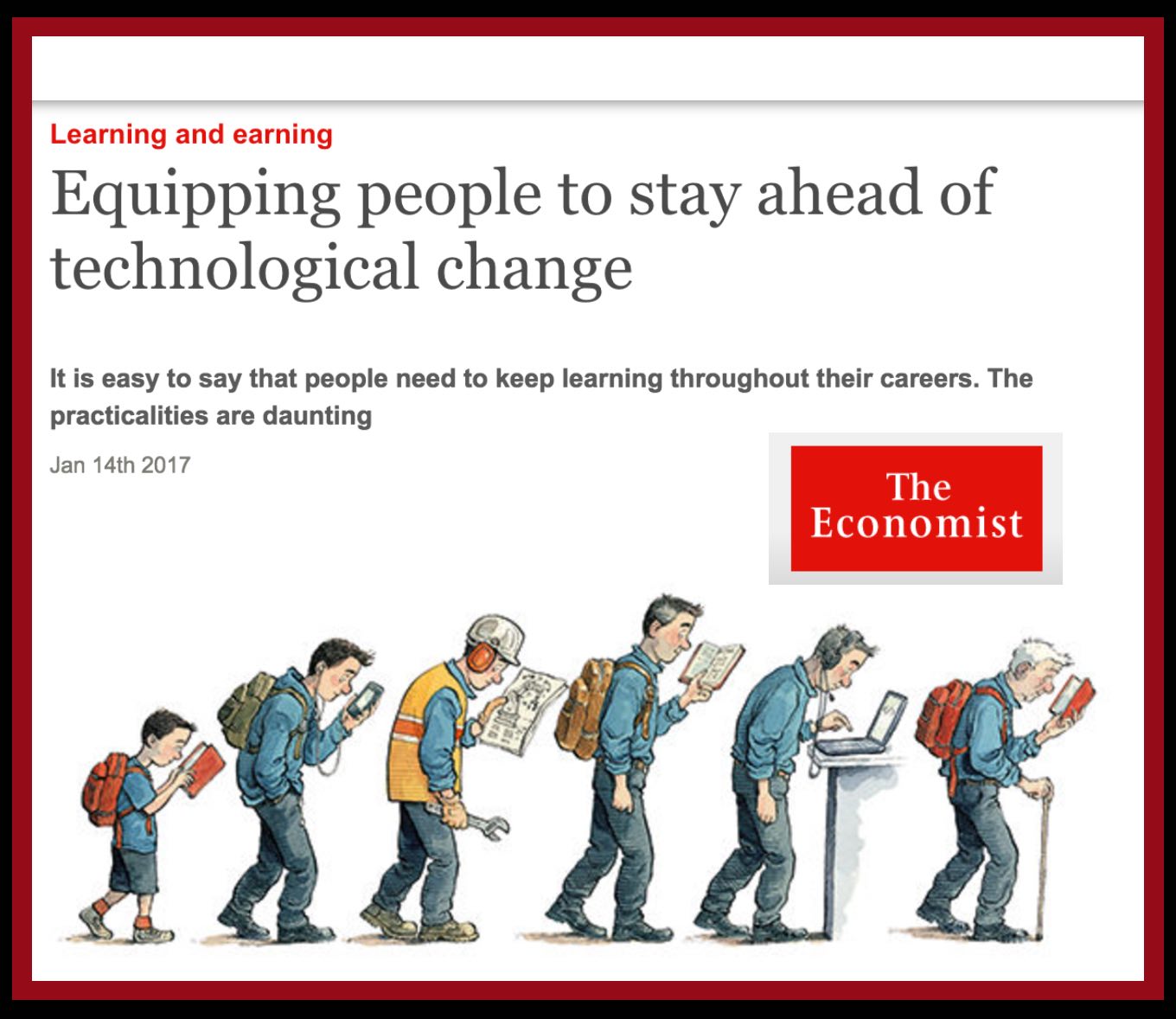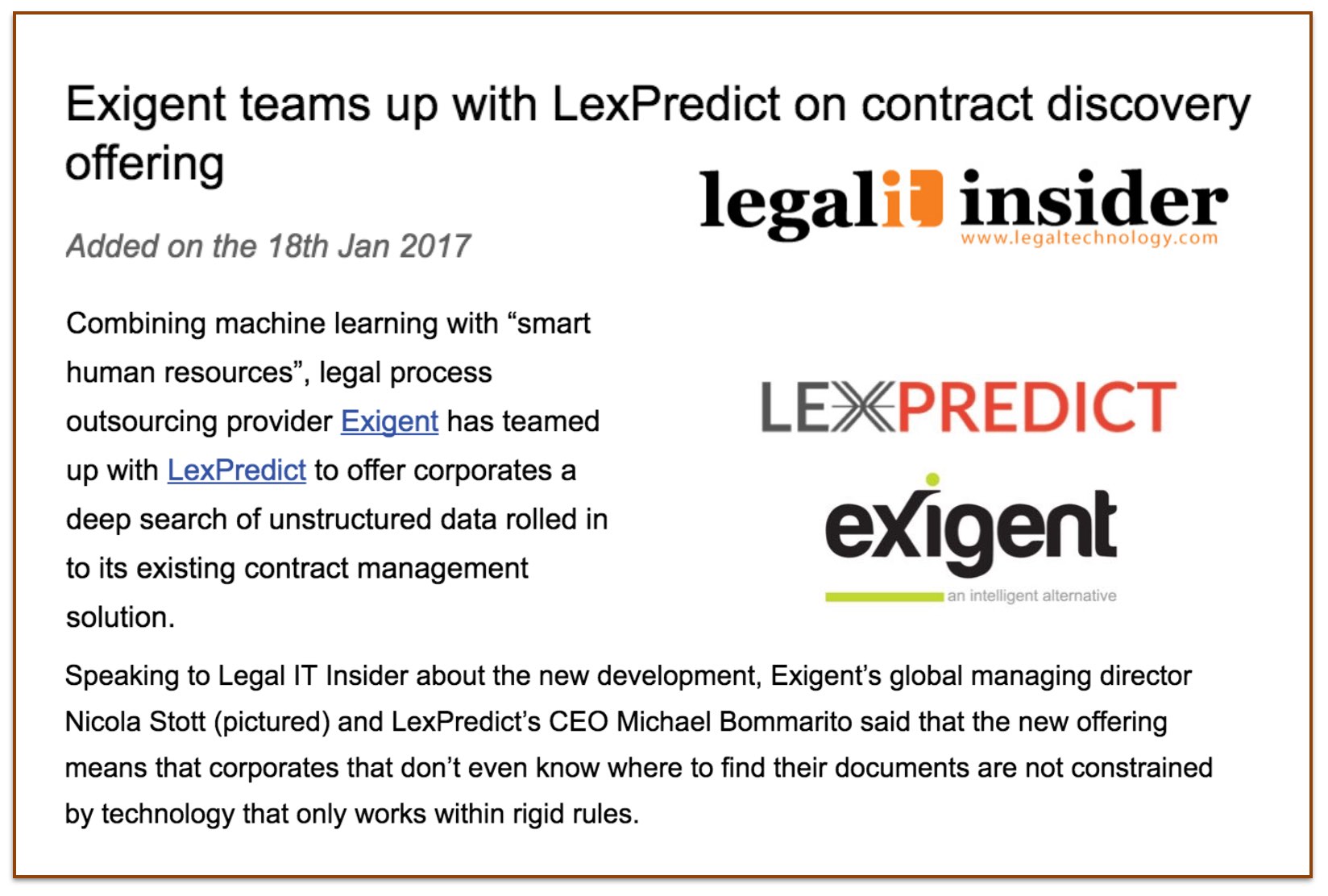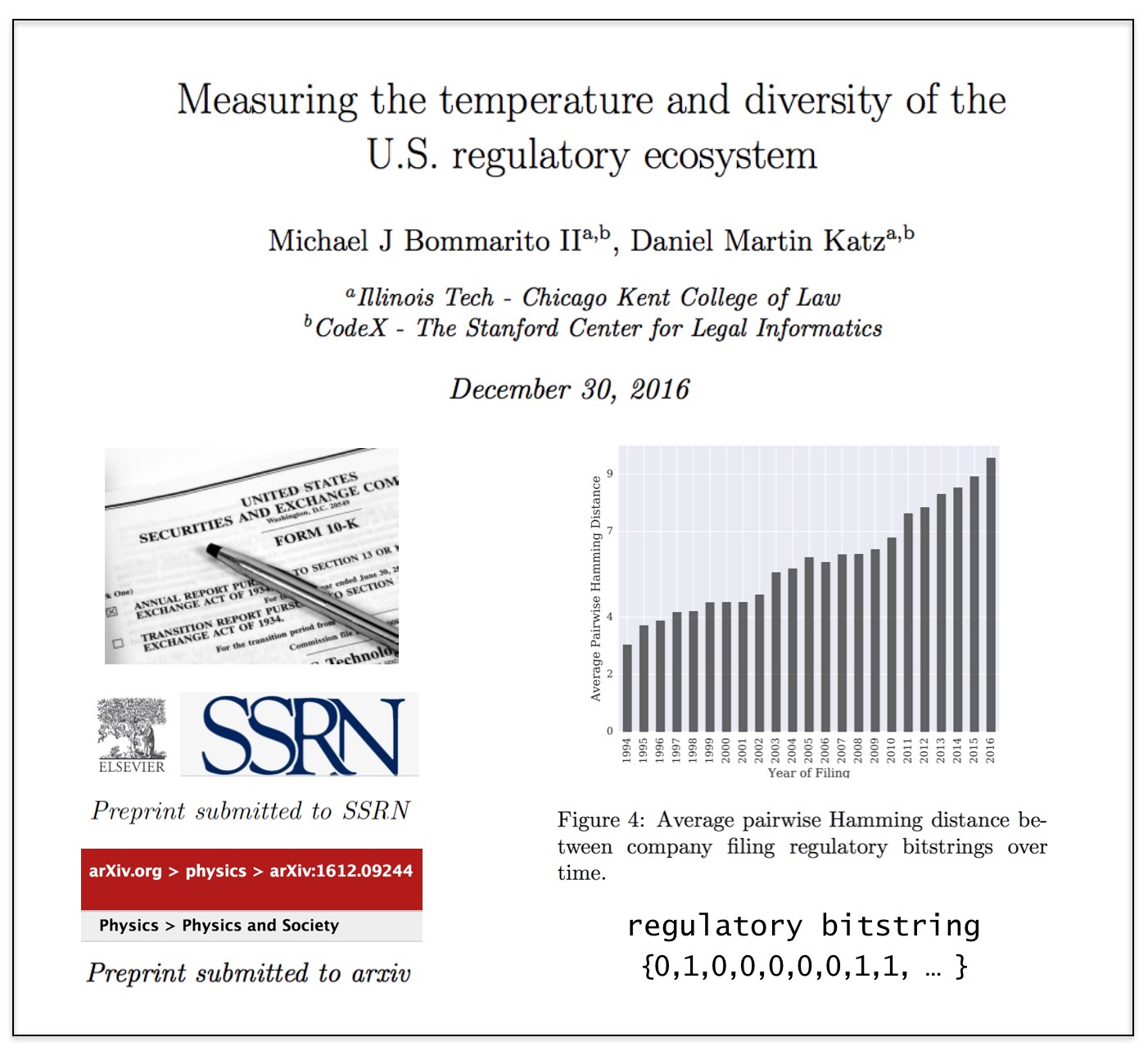–
Why Artificial Intelligence Might Replace Your Lawyer (via OYZ)
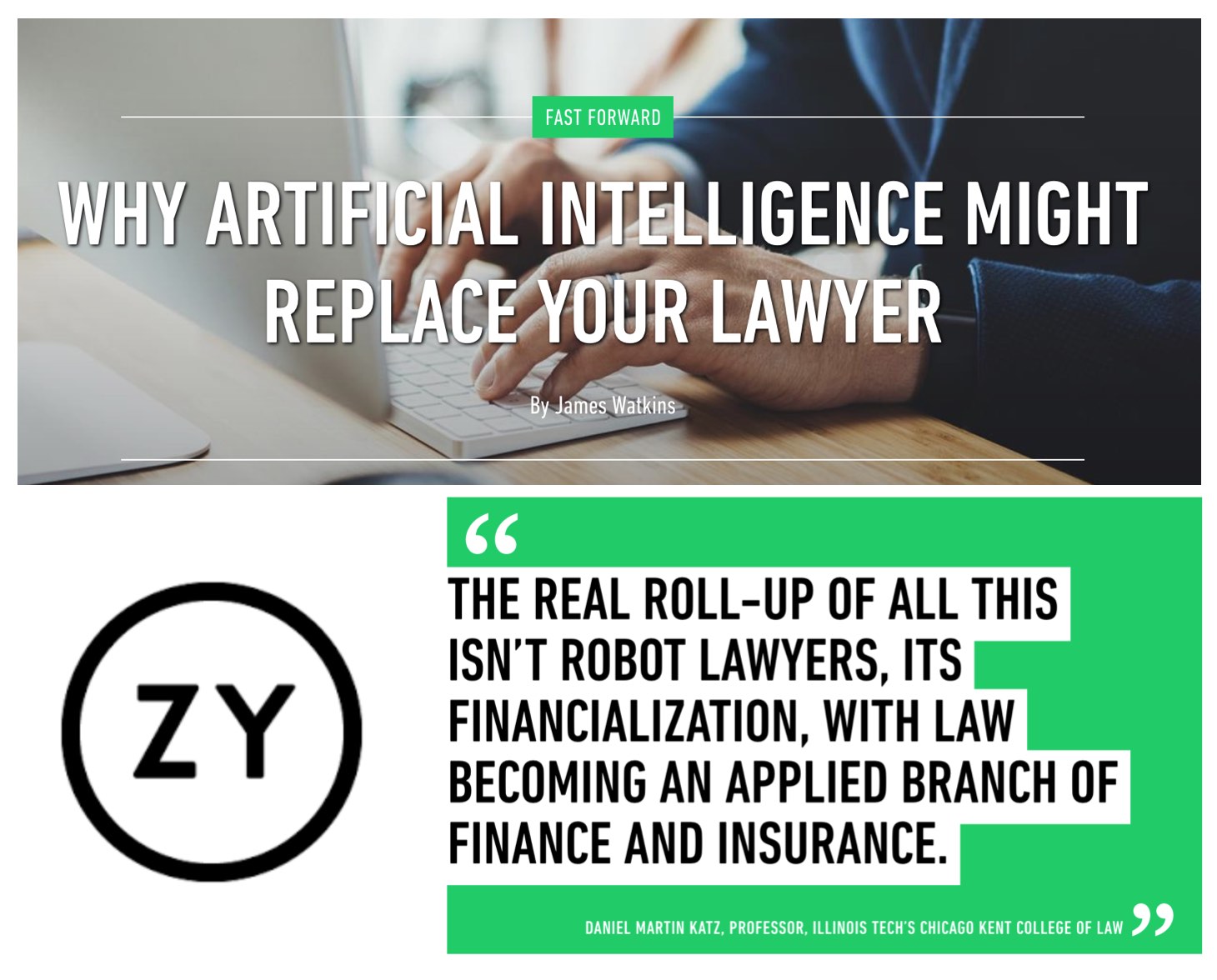 “It’s the alignment of tech and economics that is allowing all this stuff to start moving … The real roll-up of all this isn’t robot lawyers, its financialization, with law becoming an applied branch of finance and insurance” says Daniel Martin Katz, professor at Illinois Tech’s Chicago Kent College of Law.
“It’s the alignment of tech and economics that is allowing all this stuff to start moving … The real roll-up of all this isn’t robot lawyers, its financialization, with law becoming an applied branch of finance and insurance” says Daniel Martin Katz, professor at Illinois Tech’s Chicago Kent College of Law.
As Goldman Embraces Automation, Even the Masters of the Universe Are Threatened (via MIT Technology Review)
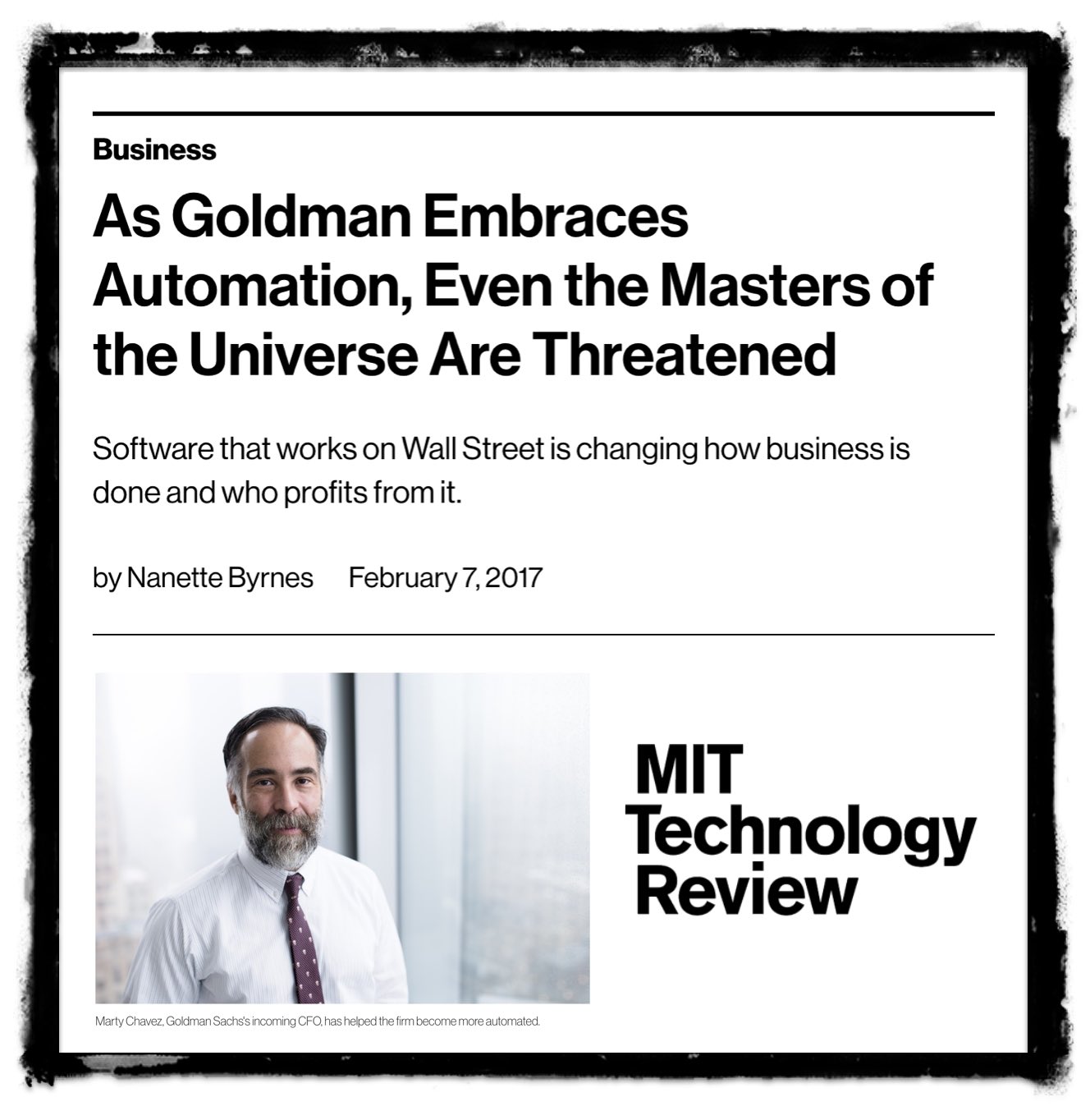 STEM > Cult of the Expert in finance and otherwise … #FinLegalTech
STEM > Cult of the Expert in finance and otherwise … #FinLegalTech
Scenes from #LegalTech 2017 / Legal Week
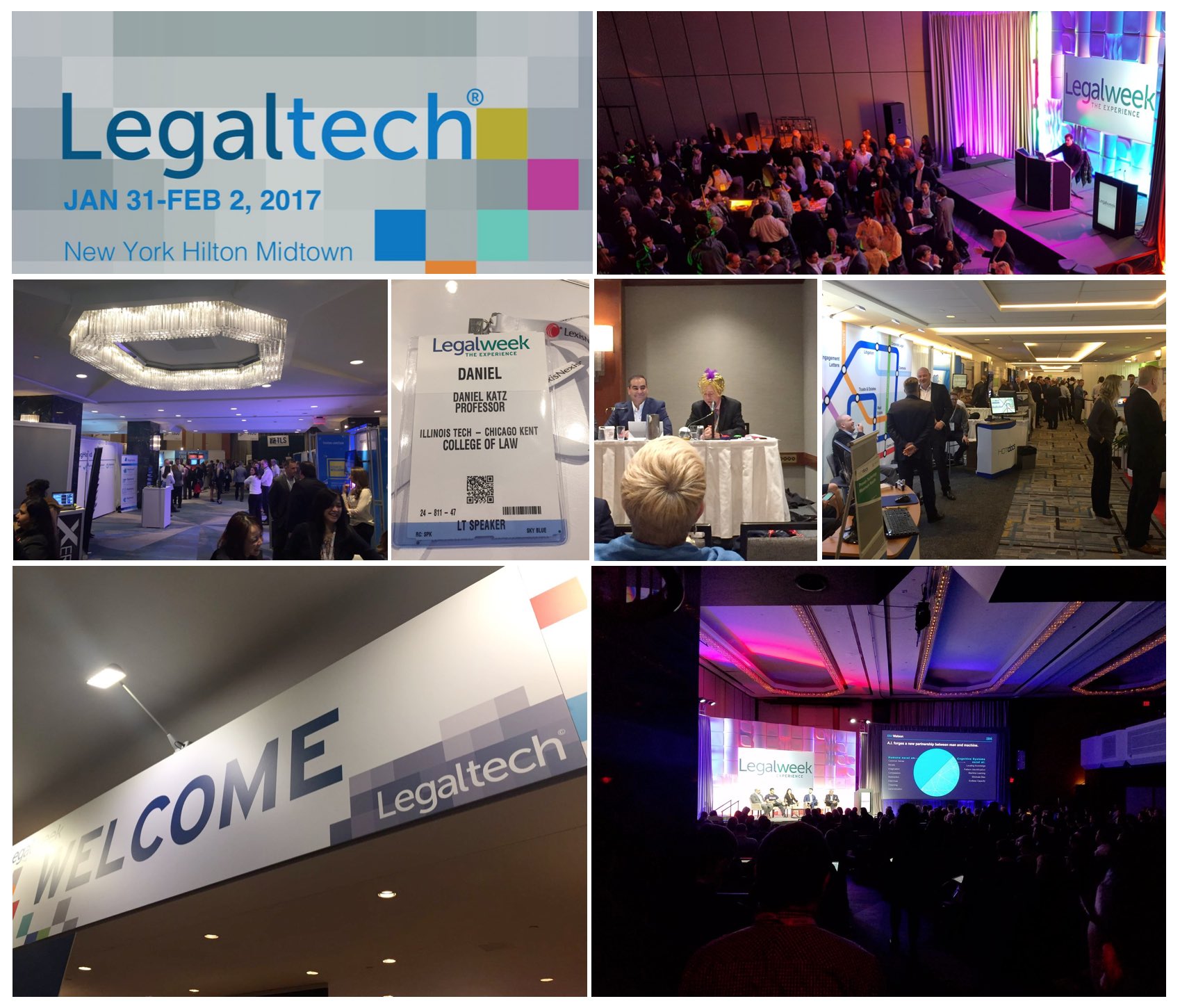
Yesterday was the final day of LegalTech NYC — the largest technology show in the Legal Industry. LegalTech NYC typically attracts 12,000+ attendees over the 3 days of the show.
I spoke on a panel on Thursday entitled – The Future of e-Discovery Law, Business, and Practice with the following panelists —
David Horrigan, kCura
Monica Bay, CodeX: The Stanford Center for Legal Informatics
Dennis Garcia, Assistant General Counsel, Microsoft
Daniel Katz, Illinois Tech – Chicago Kent College of Law + LexPredict
James Francis IV (S.D.N.Y), United States Magistrate Judge
Andrew Jimenez, CEO, Fronteo USA
Fantasy Justice by LexPredict Final Vote Tally (via LexPredict.com)
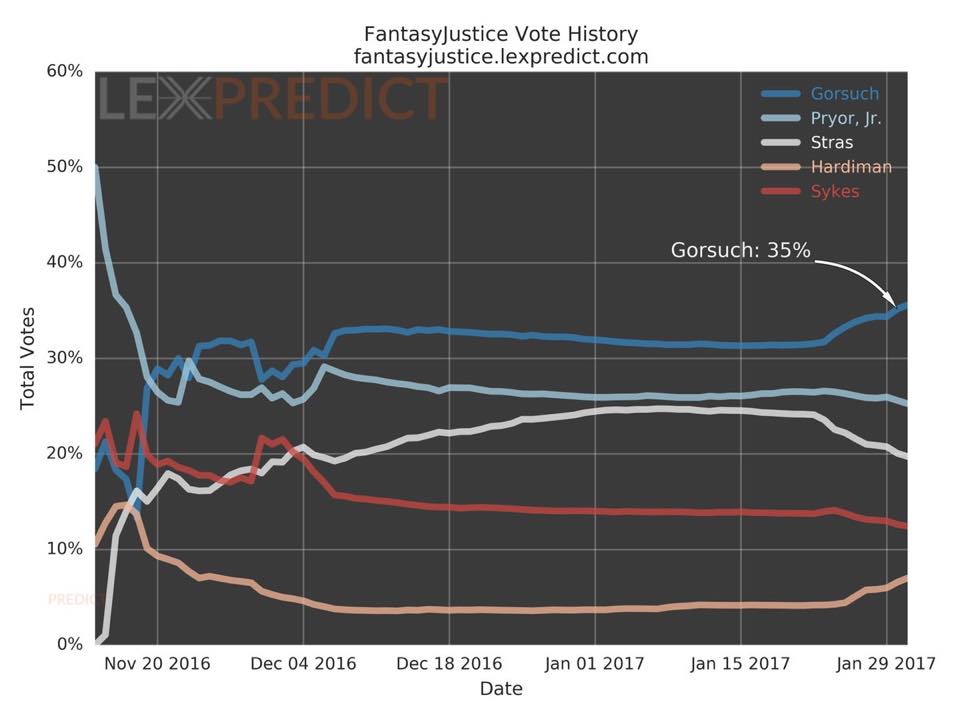 For the past few weeks we have been running Fantasy Justice – an online prediction tournament organized by our company LexPredict – Gorsuch stormed to the lead in late November and has been in first place ever since – Hardiman has made a late surge but the vast majority of votes are for Gorsuch … we will see tonight where it lands …
For the past few weeks we have been running Fantasy Justice – an online prediction tournament organized by our company LexPredict – Gorsuch stormed to the lead in late November and has been in first place ever since – Hardiman has made a late surge but the vast majority of votes are for Gorsuch … we will see tonight where it lands …
Saturday Kickoff Workshop for Legal Process Improvement / Legal Project Management Course with @SeyfarthShawLLP @ChicagoKentLaw
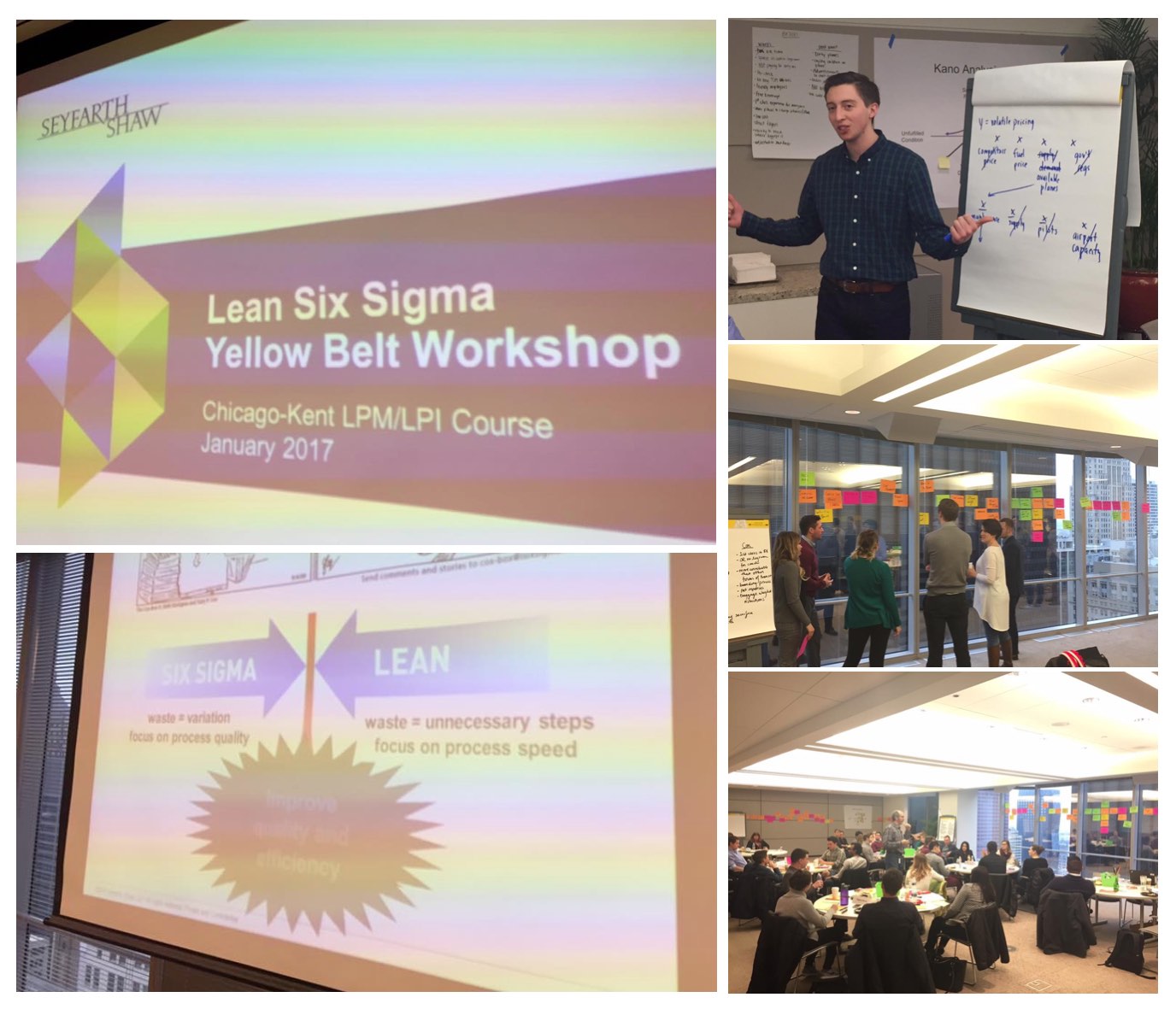
Yesterday was our Saturday morning kickoff workshop for our semester long Legal Process Improvement / Legal Project Management Course here at Illinois Tech – Chicago Kent College of Law. Students will have the opportunity to earn a Yellow Belt in Lean Six Sigma for Legal as part of the course.
I am exited to collaborate with Seyfarth Shaw LLP + Seyfarth Lean Consulting team – Kim R. Craig, Larissa Kruzel, Kyle Hoover, etc. on this brand new course. #leanlaw #legaltech #legalservicedelivery #lawyersassystematicproblemsolvers
Workshop on Complexity and the Law (University of Michigan Center for the Study of Complex Systems)
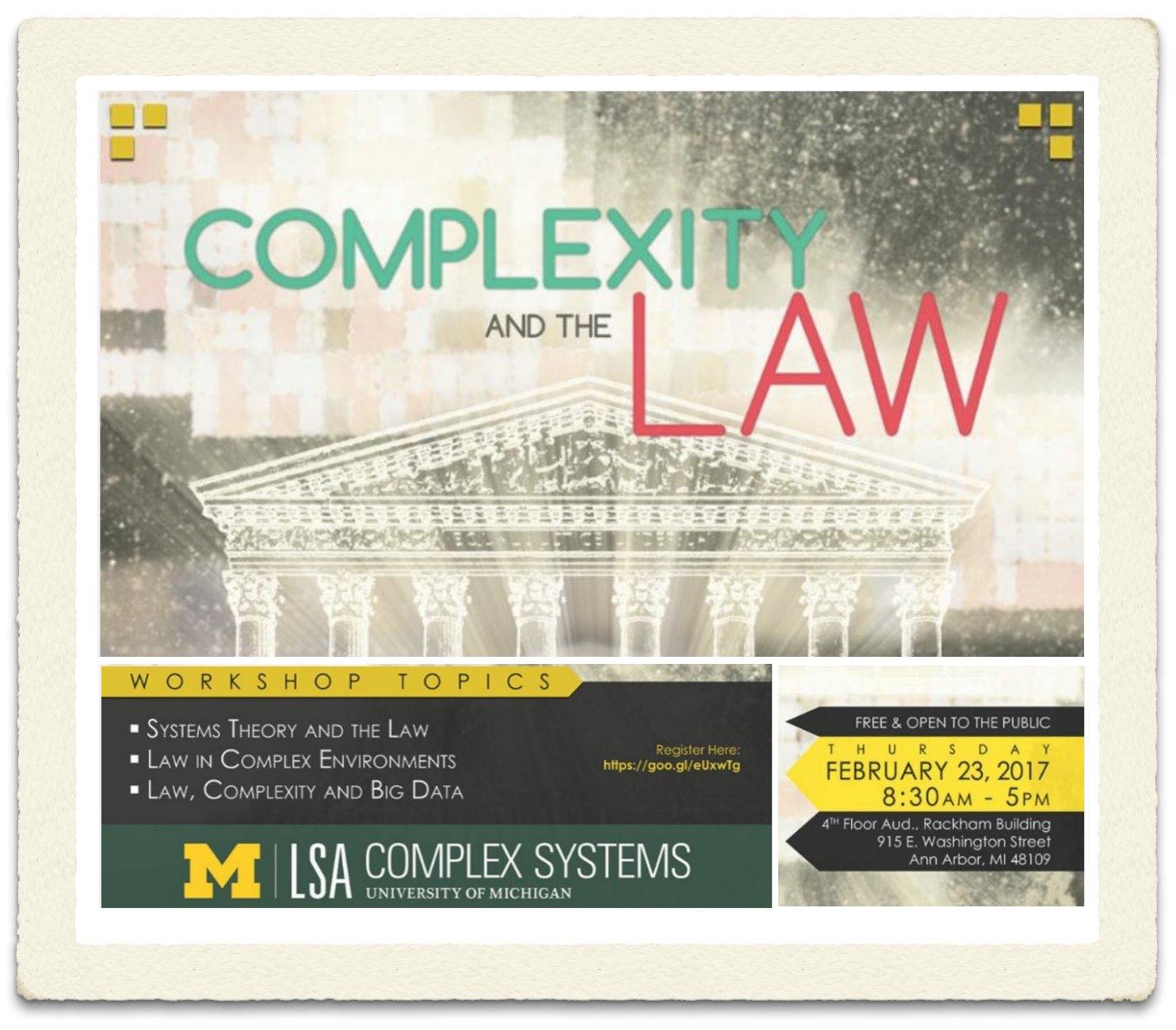 I am very excited to be heading back to UM – Ann Arbor to speak at the Workshop on Law + Complex Systems. I am particularly interested given that my PhD thesis is called “Modeling Law as a Complex Adaptive System.”
I am very excited to be heading back to UM – Ann Arbor to speak at the Workshop on Law + Complex Systems. I am particularly interested given that my PhD thesis is called “Modeling Law as a Complex Adaptive System.”
Program Chair and Speaker at the Plenary Presidential Summit @ New York State Bar Association Annual Meeting – Artificial Intelligence and its Impact on the Legal Profession –
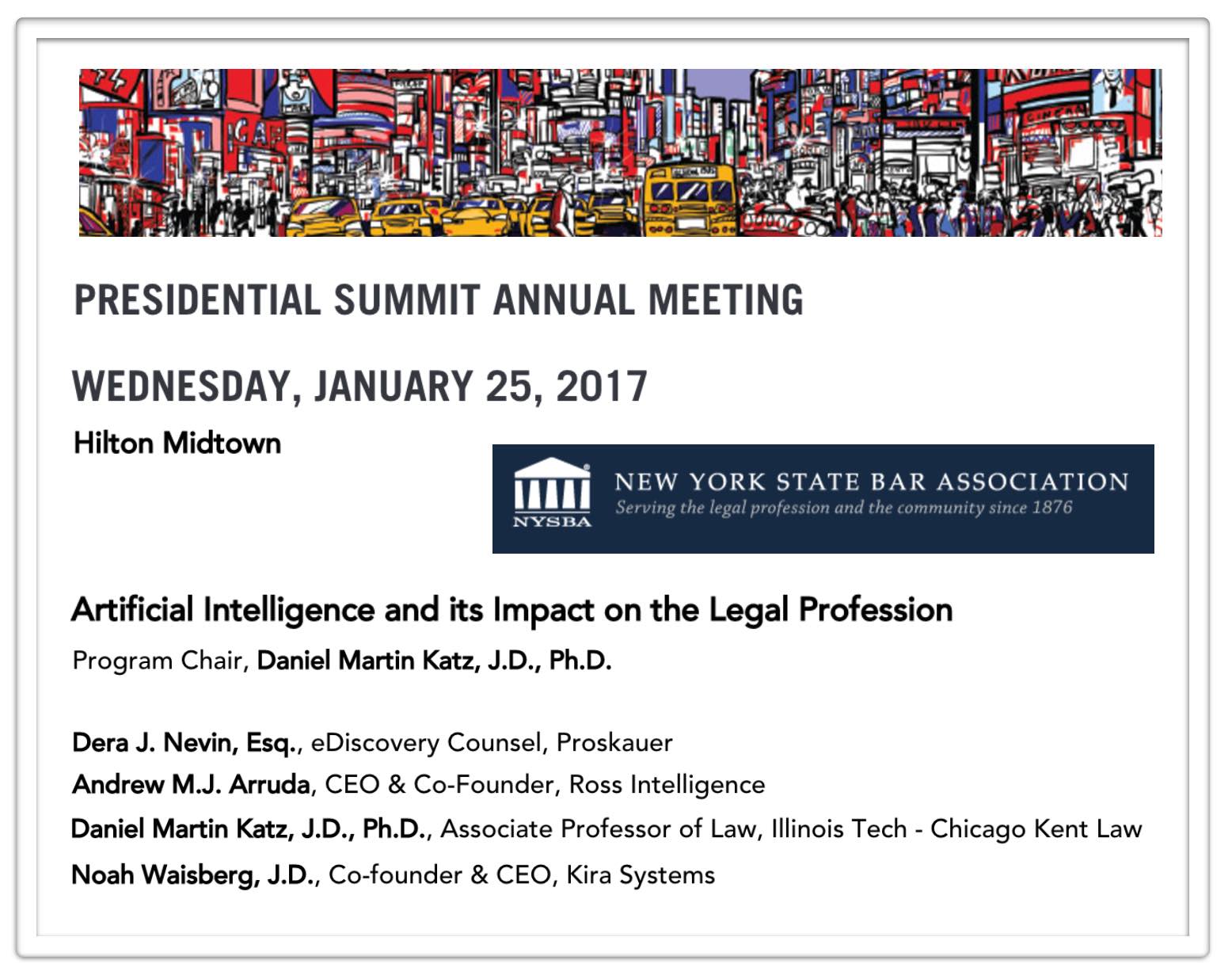
I am pleased to serve as a Program Chair and Speaker at the Plenary Presidential Summit @ New York State Bar Association Annual Meeting. Today’s topic will be Artificial Intelligence and its Impact on the Legal Profession. Joining me on the panel are the following panelists covering the following topics:
What is Artificial Intelligence? What is Machine Learning?
Dera J. Nevin, eDiscovery Counsel, Proskauer
What are Some Applications of Artificial Intelligence, Machine Learning, and Predictive Analytics in Law?
Andrew M.J. Arruda, CEO & Co-Founder, Ross Intelligence
Daniel Martin Katz, J.D., Ph.D., Associate Professor of Law, Illinois Tech – Chicago Kent Law
What are the Labor Market Impacts? More Jobs, Less Jobs, Different Forms of Legal Jobs and Legal Work?
Noah Waisberg, J.D., Co-founder & CEO, Kira Systems
Co-Teaching Legal Process Improvement + Legal Project Management Class : Illinois Tech – Chicago Kent College of Law / Seyfarth Lean
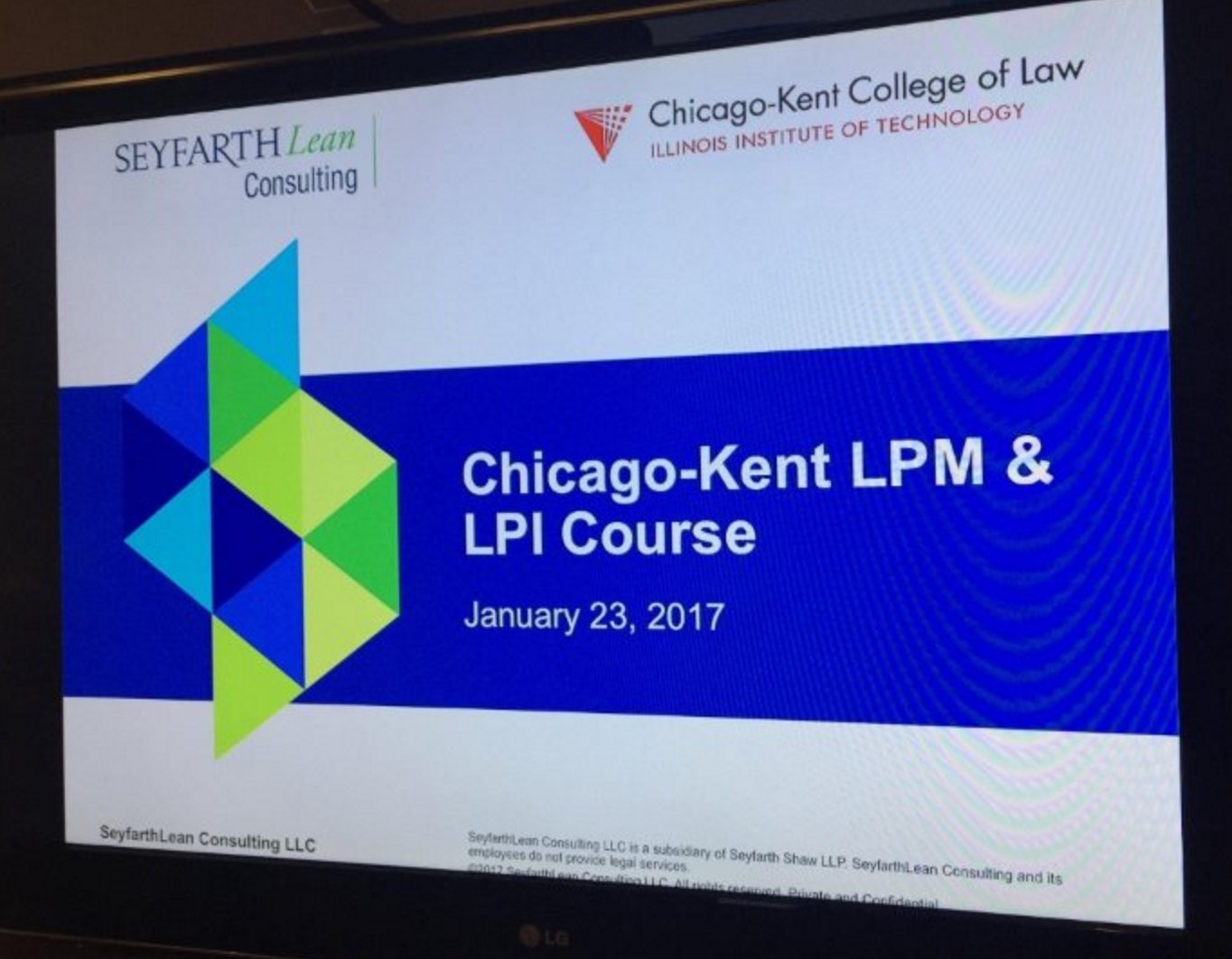
This week we kicked off the semester for our @ChicagoKentLaw / @SeyfarthShawLLP Legal Process Improvement / Legal Project Management Class. This 15 week two credit class will be among the very first of its kind to be taught at a law school.
I am very honored to have the opportunity to work with the Seyfarth Lean Consulting team – Kim R. Craig, Larissa Kruzel, Kyle Hoover on this course! #leanlaw #legaltech #sixsigmaforlawyers #LPM #legalprocessimprovement #legalengineering
The rate at which US Companies cite regulations as an obstacle has quadrupled over the last 20 years (via Quartz)
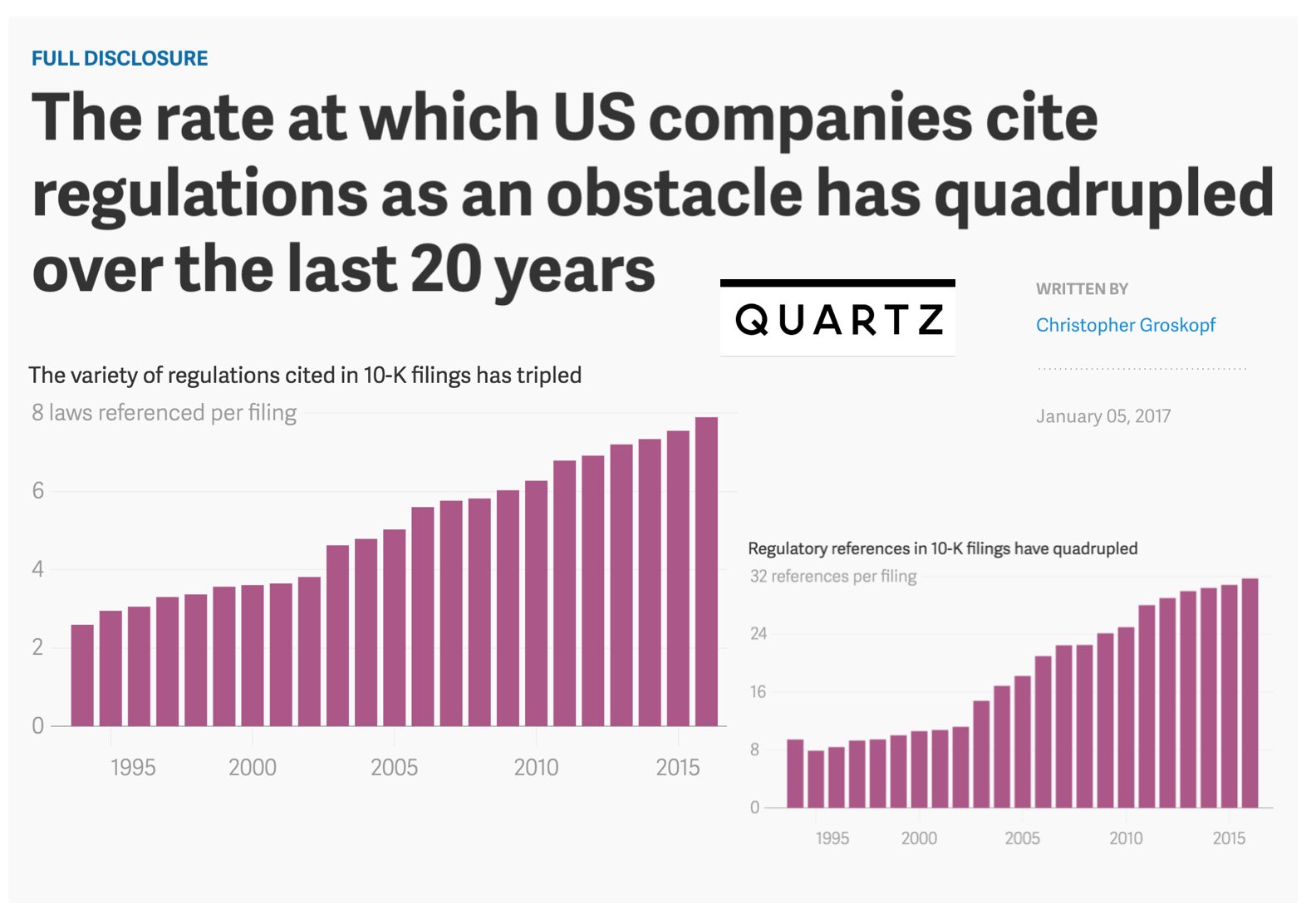 “Michael Bommarito II and Daniel Martin Katz, legal scholars at the Illinois Institute of Technology, have tried to measure the growth of regulation by analyzing more than 160,000 corporate annual reports, or 10-K filings, at the US Securities and Exchange Commission. In a pre-print paper released Dec. 29, the authors find that the average number of regulatory references in any one filing increased from fewer than eight in 1995 to almost 32 in 2016. The average number of different laws cited in each filing more than doubled over the same period.”
“Michael Bommarito II and Daniel Martin Katz, legal scholars at the Illinois Institute of Technology, have tried to measure the growth of regulation by analyzing more than 160,000 corporate annual reports, or 10-K filings, at the US Securities and Exchange Commission. In a pre-print paper released Dec. 29, the authors find that the average number of regulatory references in any one filing increased from fewer than eight in 1995 to almost 32 in 2016. The average number of different laws cited in each filing more than doubled over the same period.”
Measuring the Temperature and Diversity of the U.S. Regulatory Ecosystem (Preprint on arXiv + SSRN)
From the Abstract: Over the last 23 years, the U.S. Securities and Exchange Commission has required over 34,000 companies to file over 165,000 annual reports. These reports, the so-called “Form 10-Ks,” contain a characterization of a company’s financial performance and its risks, including the regulatory environment in which a company operates. In this paper, we analyze over 4.5 million references to U.S. Federal Acts and Agencies contained within these reports to build a mean-field measurement of temperature and diversity in this regulatory ecosystem. While individuals across the political, economic, and academic world frequently refer to trends in this regulatory ecosystem, there has been far less attention paid to supporting such claims with large-scale, longitudinal data. In this paper, we document an increase in the regulatory energy per filing, i.e., a warming “temperature.” We also find that the diversity of the regulatory ecosystem has been increasing over the past two decades, as measured by the dimensionality of the regulatory space and distance between the “regulatory bitstrings” of companies. This measurement framework and its ongoing application contribute an important step towards improving academic and policy discussions around legal complexity and the regulation of large-scale human techno-social systems.
Available in PrePrint on SSRN and on the Physics arXiv.

